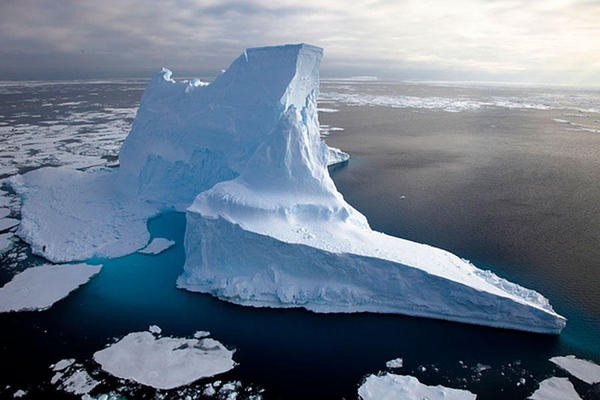
New evidence links rapid sea level rise 14,500 years ago to icebergs breaking off Antarctica.
Credit: Frank Roedel, Alfred Wegener Institute
Some 14,600 years ago, sea levels rose 6.5 feet in just a century, thanks to Antarctica's melting glaciers. It could happen again, say researchers.
livescience.com - by Becky Oskin - May 28, 2014
Antarctica's melting glaciers launched so many icebergs into the ocean 14,600 years ago that sea level rose 6.5 feet (2 meters) in just 100 years, a new study reports. The results are the first direct evidence for dramatic melting in Antarctica's past — the same as predictions for its future.
"The Antarctic Ice Sheet had been considered to be fairly stable and kind of boring in how it retreated," said study co-author Peter Clark, a climate scientist at Oregon State University. "This shows the ice sheet is much more dynamic and episodic, and contributes to rapid sea-level rise."
(READ COMPLETE ARTICLE)
Recent Comments